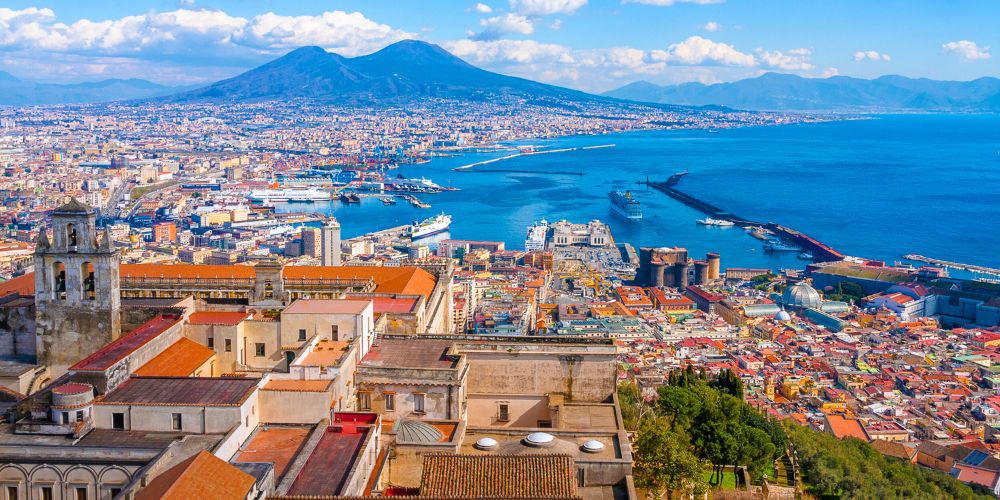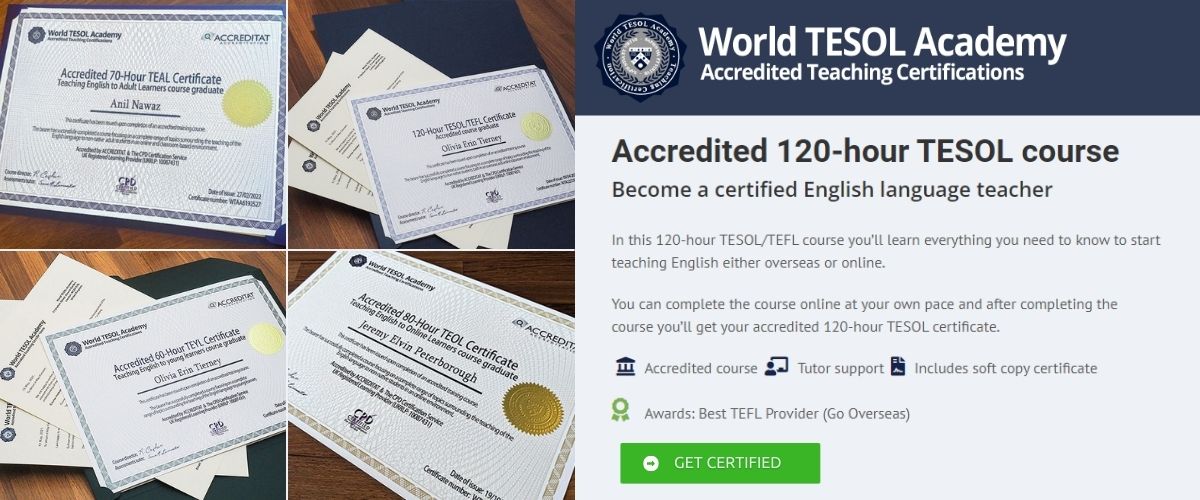
Top Cities for ESL Teaching in Italy
Embarking on an ESL teaching journey in Italy offers you the chance to immerse yourself in a vibrant country where rich history and deep-rooted traditions meet modern life.
Whether you’re drawn to the architectural wonders of Rome, the artistic charm of Florence, or the lively energy of Naples, each city offers unique professional opportunities and lifestyle experiences for ESL teachers.
In this article, we’ll explore the top cities in Italy for launching your ESL teaching career!
Rome — The Eternal City
As the capital of Italy and one of the most historically significant cities in the world, Rome is an incredible place to live and teach. With its ancient ruins, Renaissance architecture, and buzzing atmosphere, Rome offers ESL teachers the chance to immerse themselves in a vibrant and culturally rich environment.
Teaching opportunities
Rome has one of the most developed ESL job markets in Italy, with a high demand for English teachers in private language schools, business English programs, and international schools. Many professionals, university students, and even younger learners seek English instruction to boost their career prospects, making private tutoring a lucrative option. However, competition can be high, so prior teaching experience is highly valuable.
Historic and urban life
Living in Rome means being surrounded by world-famous landmarks like the Colosseum, the Vatican, and the Trevi Fountain. ESL teachers can spend their free time wandering through charming piazzas, enjoying authentic Roman cuisine, and experiencing the city’s lively café culture. With an extensive public transportation system and plenty of opportunities for weekend trips to Tuscany or the Amalfi Coast, Rome is a perfect base for teachers looking to explore Italy.
Milan — The Business and Fashion Hub
Milan is Italy’s economic powerhouse, known for its cutting-edge fashion industry, financial districts, and contemporary urban lifestyle. While it may lack Rome’s ancient charm, it makes up for it with modernity, efficiency, and a cosmopolitan atmosphere.
ESL teaching market
As Italy’s financial and business capital, Milan has a strong demand for corporate English training, making it a great place for ESL teachers with a background in business English. Private language academies, international schools, and companies offering in-house English training provide plenty of teaching opportunities. While the cost of living is higher than in other Italian cities, salaries tend to be more competitive, and private tutoring can be especially profitable.
Lifestyle and attractions
Milan combines a fast-paced lifestyle with a deep cultural heritage, ideal for those who appreciate art, shopping, and nightlife. Teachers can visit iconic sites like the Duomo di Milano, view Leonardo da Vinci’s The Last Supper, shop away in shopping districts like the Galleria Vittorio Emanuele II, or enjoy an evening aperitivo in the stylish Navigli district. The city’s well-connected train system also makes it easy to explore nearby destinations like Lake Como or even Switzerland on weekends.
Florence — The Cradle of the Renaissance
Florence, the birthplace of the Renaissance, is an artistic and cultural treasure. With its breathtaking cathedrals, stunning galleries, and charming streets, Florence offers a slower-paced yet enriching lifestyle for ESL teachers who appreciate history and the arts.
Teaching opportunities
Florence has a strong demand for English teachers, particularly in private language schools catering to young learners, university students, and business professionals. Since tourism is a major industry, many locals seek English lessons to improve their job prospects. While salaries may not be as high as in Milan or Rome, the lower cost of living and the city’s charm make it a worthwhile destination.
Artistic and cultural immersion
ESL teachers in Florence can spend their free time visiting world-renowned museums like the Uffizi Gallery, admiring Michelangelo’s David, or relaxing with a coffee in Piazza della Signoria. The city’s compact size makes it easy to explore on foot, and Tuscany’s picturesque countryside offers fantastic weekend getaways for scenic road trips.
Naples — The Soul of the South
Naples is a lively and authentic city that offers a true taste of southern Italian culture. Known for its passionate locals, historic streets, and, of course, the birthplace of pizza, Naples provides a unique and immersive teaching experience.
Teaching jobs
There is a growing demand for ESL teachers in Naples, especially in private language schools and public programs aimed at improving English proficiency among students. While salaries may be lower than in northern Italy, the cost of living is significantly more affordable. Additionally, private tutoring is in high demand, providing opportunities for teachers to supplement their income.
Vibrant culture and lifestyle
Naples is famous for its incredible food, bustling markets, and proximity to some of Italy’s most breathtaking sites, including Pompeii, the Amalfi Coast, and Capri. Teachers can explore underground ruins, take in stunning views from Castel dell’Ovo, or enjoy an authentic Neapolitan pizza in its place of origin. The city’s warm climate and seaside setting add to its charm and popularity.
Bologna — The Academic Center
Home to the oldest university in Europe, Bologna is a lively and intellectual city with a strong academic culture. It’s known for its medieval architecture, vibrant student life, and some of the best food in Italy.
Teaching opportunities
Bologna’s high student population means a strong demand for ESL teachers in university-affiliated programs, private language schools, and tutoring. Many young professionals also seek English lessons to enhance their career prospects. The city offers a balanced cost of living, making it an attractive choice for teachers looking for affordability without sacrificing culture or convenience.
Lifestyle and attractions
Bologna’s arcaded streets, historic towers, and thriving café culture make it a wonderful place to live. Teachers can enjoy world-class cuisine, visit historic sites like Piazza Maggiore, or take advantage of the city’s central location to explore nearby regions such as Tuscany, Venice, and the Emilia-Romagna countryside.
Turin — The Northern Gem
Often overlooked in favour of Milan, Turin is a historically rich city with stunning Baroque architecture, a thriving café culture, and a scenic backdrop of the Alps. It’s also one of Italy’s most dynamic cities for ESL teachers, offering a mix of economic opportunity, cultural richness, and a lower cost of living compared to Rome or Milan.
Teaching opportunities
As a major industrial and business hub, Turin attracts professionals, university students, and young learners eager to improve their English for career and academic growth. Thanks to this, there is a stable demand for ESL teachers, with opportunities in private language schools, public school programs, universities, and business English training.
Lifestyle and attractions
Turin is famous for its royal palaces, chocolate, and historic coffeehouses. Teachers can explore places like the Mole Antonelliana, stroll through Piazza Castello, or take a weekend trip to the nearby Alps for hiking or skiing. The city’s refined atmosphere and proximity to France add to its unique appeal.

What do you need to start teaching in Italy?
EU nationals generally don’t need a work visa to teach in Italy, thanks to the open working right under the Schengen agreement. Due to this, ESL employers often favour hiring teachers from within the EU.
However, they may still need to register for an Italian tax code (Codice Fiscale) and apply for a residence permit (Permesso di Soggiorno) depending on the length of their stay.
For non-EU teachers, there are a few possible paths to explore:
- Work visa (Visto per Lavoro Subordinato): For non-EU citizens, securing a work visa requires a formal job offer from an Italian employer. The employer must apply for a work permit (Nulla Osta al Lavoro) before the visa application process can begin. However, work visas are subject to Italy’s annual work permit quotas, making them quite competitive.
- Student visa with work authorization (Visto per Studio): Many ESL teachers enter Italy on a student visa, which allows them to work part-time (up to 20 hours per week) while studying. This can be a practical option for those looking to gain teaching experience while attending language courses or other studies in Italy.
- Digital nomad visa: Online ESL teachers working remotely may qualify for Italy’s Digital Nomad Visa. While details of the program continue to evolve, this visa is designed for remote workers who meet income and professional experience requirements and do not engage in local employment.
- Working holiday visa: This visa is available to some nationalities, and it allows short-term work and travel in Italy for up to 12 months. While it does not require employer sponsorship, it is limited to young travelers (typically aged 18-30 or 35, depending on nationality) and cannot be renewed.
To teach in Italy, you should aim to obtain the following qualifications:
📜 TEFL/TESOL certification: A 120-hour TEFL or TESOL certificate is generally required for ESL teaching positions in Italy, especially in private language schools. Some international schools and universities may require additional qualifications such as a teaching license, but a TEFL/TESOL is the most common requirement for new teachers.
🎓 Bachelor’s degree: For non-EU citizens, a bachelor’s degree is generally required to obtain a work visa. For EU citizens, a degree is typically not required to work in Italy, but many employers still prefer candidates with one, especially for full-time teaching positions.
🗣️ English proficiency: Native English speakers are preferred, but non-native speakers with high English proficiency (IELTS/TOEFL certificates) are also to find opportunities. Strong teaching skills and a clear accent can improve job prospects.
🧑🏫 Teaching Experience: While not always required, prior teaching experience is an advantage and can make your resume stand out—especially in popular cities like Rome and Milan, where competition for teaching positions tends to be higher.
Meeting these requirements will help prepare you for a successful ESL teaching experience in Italy. While the process may be more straightforward for EU citizens, non-EU teachers can still find opportunities with the right preparation and visa pathway.
Starting your teaching journey
Teaching English in Italy is an incredible opportunity to gain international experience, while exploring one of the world’s most beautiful countries. Whether you prefer the fast-paced energy of Rome and Milan, the artistic charm of Florence, or the laid-back lifestyle of Naples and Bologna, Italy offers diverse opportunities for ESL teachers.
Navigating the visa process and job markets can be challenging for non-EU teachers, but the rewards of living and teaching in Italy make the effort worthwhile. With the right qualifications and preparation, you can build a fulfilling teaching career and experience Italy’s rich history, world-class cuisine, and vibrant way of life.
Are you ready to start your next teaching adventure in Italy?
Getting your TESOL/TEFL certificate:
To teach English in Italy, you’ll need to an accredited 120-hour TESOL/TEFL certificate.
If you haven’t obtained your certificate yet, you can enroll in our dually accredited course here:
.
If you have any questions about our courses and certificates, feel free to contact us via the website live chat or via our contact form.











Leave A Comment